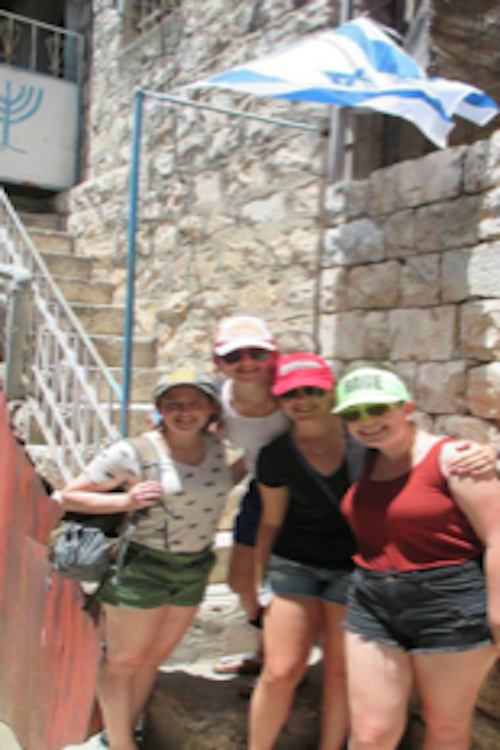Staples students witness the Israeli-Palestine conflict first-hand
While Baxter Stein ’14 originally traveled to Israel to immerse himself in its ancient history, for the past eight weeks, he also watched history unfold right before his eyes.
After World War II, Israel was “given a large part of Palestine, which they considered their traditional home but the Arabs who already lived there and in neighboring countries felt that was unfair and didn’t accept the new country,” according to BBC, and this conflict between Israel and the Palestinians of who has the right to the Gaza strip has put them in a state of war.
While traveling and exploring Israel, Stein, along with Nikki Lynch ’16 and Sydney Sussman ’15 who were in different programs, shared their experience with the Israeli/Palestinian conflict and how it affected their overall experiences and perspectives.
At some point during their trips, all three encountered missile sirens, Israel’s system of alerting the public of a potential attack. Stein recalled that in the week before he arrived to the tennis center that brings together Israeli and Arab children to play tennis, where he’s currently working, “the missile sirens had gone off forcing Arab and Israeli kids to hide together in the bomb shelters, a somewhat symbolically powerful moment.”
In fact, the warning of a siren cut Lynch’s five-week leadership program through Dor l’ Dor Cohen camps short. In response to the missile warnings in Tel Aviv, which was supposed to be Lynch’s final destination, her program fled to the Golan Heights to ensure safety. Lynch remembered, “Eventually, there was nowhere else safe to go where we hadn’t toured, so our trip left a week early.”
Sussman, who was in the program I-Speak Israel which teaches students advocacy for Israel in their daily lives and on college campuses, was anxious about the unpredictability of the sirens, especially about the high chance that she “would be woken up in the middle of the night and have to run to a bomb shelter.”
From inside a shelter, Stein recalled feeling the “shockwave of the Iron Dome missile defense system intercepting rockets overhead” which, in fact, made him feel safer.
In spite of the country being in a state of war, all three Staples students rarely felt unsafe in Israel. “Knowing that nearly all the missiles are intercepted or land in open areas and when the sirens go off we have 90 seconds to find shelter,” made Stein feel safe. “Each bus that traveled with us had a security guard that watched us at all times,” Lynch recalled. Sussman even said, “Never once did I feel that it was the wrong decision to stay in Israel.”
Stein felt that along with the knowledge of history and Israeli culture, his experience gave him a new perspective on international conflict as a whole. “It’s one thing to talk about the issues from the safety of your home in America. It’s easy to get into fights about being pro-Israel or pro-Palestine or simply advocate for ceasefire and peace, but it’s another thing entirely to do so after emerging from a bomb shelter, or seeing the fear and anger of people towards Hamas and their inhumane and abhorrent tactics,” Stein said.

When she first joined Inklings her sophomore year, Jane Levy ’16 was scared to raise her hand in class. She lacked confidence in her voice and her skill....

















































